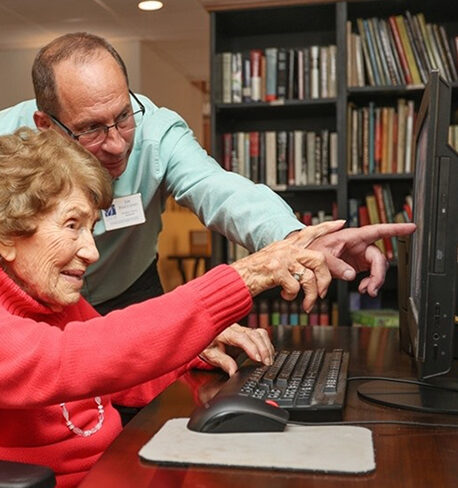<!–[CDATA[October is National Crime Prevention Month. It’s a month dedicated to raising awareness about topics related to public safety and the steps you can take to avoid becoming a victim of a crime. The goal is to create safer cities and towns for everyone, including older adults. Seniors are especially vulnerable because criminals often see them as easy targets.
Why Do Criminals Target Seniors?
There are many reasons why older adults are considered to be good targets as victims of crime:
- Good credit: Seniors are more likely to have good credit scores making them ideal candidates for identity theft. A criminal can steal their social security number and personal information and use it to open credit cards.
- Don’t report: Because older adults are often too embarrassed to report falling victim to a crime, they increase their risk of being targeted. Seniors also worry that if they tell their family what happened, their adult children might insist they make changes in their life they aren’t ready to make.
- Feel Lonely: An older adult who lives alone might feel isolated and lonely. This may make them more willing to spend time talking—in person or on the phone—with strangers. The longer they talk, the greater the odds are that the scammer will convince them to “place a deposit for a home repair” or give up a credit card number to ship a “prize” they’ve won.
By educating your senior loved one about common types of scams, you can help prevent them from becoming a victim.
Crimes Against Seniors
The first step to crime prevention is education. Here are a few of the most common scams perpetrated against seniors:
1. Health insurance fraud and Medicare scams
If a criminal gains access to a senior’s health insurance card or Medicare number, they may use it for their own medical needs. They are just as likely to sell the information on the black market so others can use it.
Encourage your family member not to keep these cards with them when out in public. Instead, they should keep them locked in a secure place at home. Take them out only when needed for medical appointments, and return them immediately after.
2. Telemarketing scams
There are too many different telemarketing scams to be able to list! Some of the ones that older adults commonly fall for are related to winning “prizes.” They can range from a vacation to a car or new furniture. The literature directs the senior to call a phone number to claim their reward. When they do, the older adult is told they must pay for taxes or shipping before the prize can be mailed. Once the scammer has their credit card information, no prize ever appears.
You can help prevent these calls by signing your family member up for the National Do Not Call Registry. Also remind them never to give credit card or debit card information out over the phone.
3. The grandparent scam
Even though this one has been around for a while, people continue to fall for it. This crime is when someone calls pretending to be a grandchild or other family member. The caller tells the senior they are in trouble and need money or credit card information in a hurry. In many cases, the caller even knows the older adult’s name and may have their caller ID set to resemble the family member’s number.
The Federal Trade Commission advises that if you or a senior loved one receive one of these types of calls to hang up immediately. Then call the family member back at their personal number (not the number the caller gives you). More often than not, there is no emergency.
Bookmark the Five Star Blog
If you are an adult child or family caregiver trying to stay up-to-date on crimes targeting seniors and other issues like this, bookmark the Five Star Senior Living blog. Be sure to stop back often to read the newest posts on aging, care giving, and senior living.

